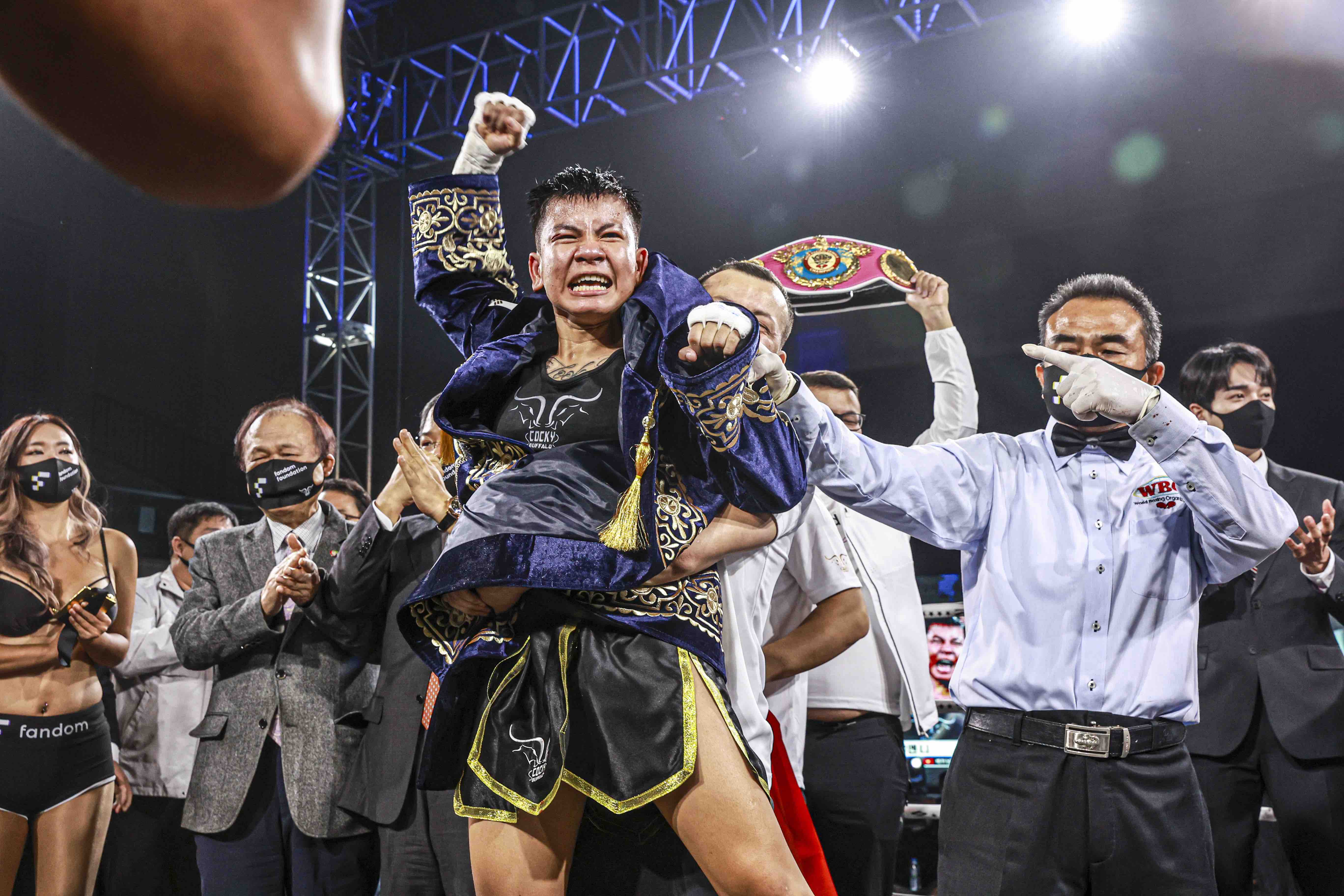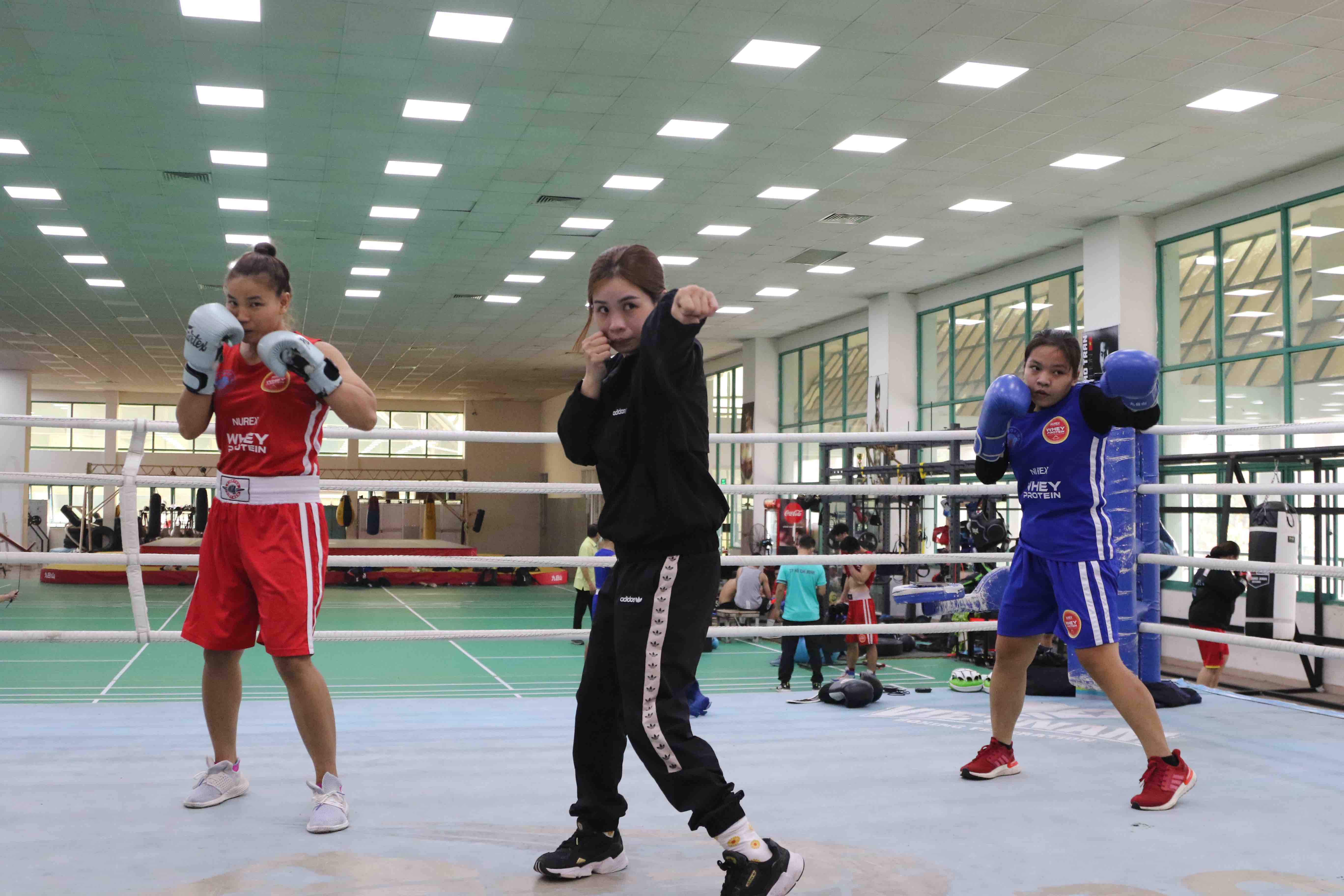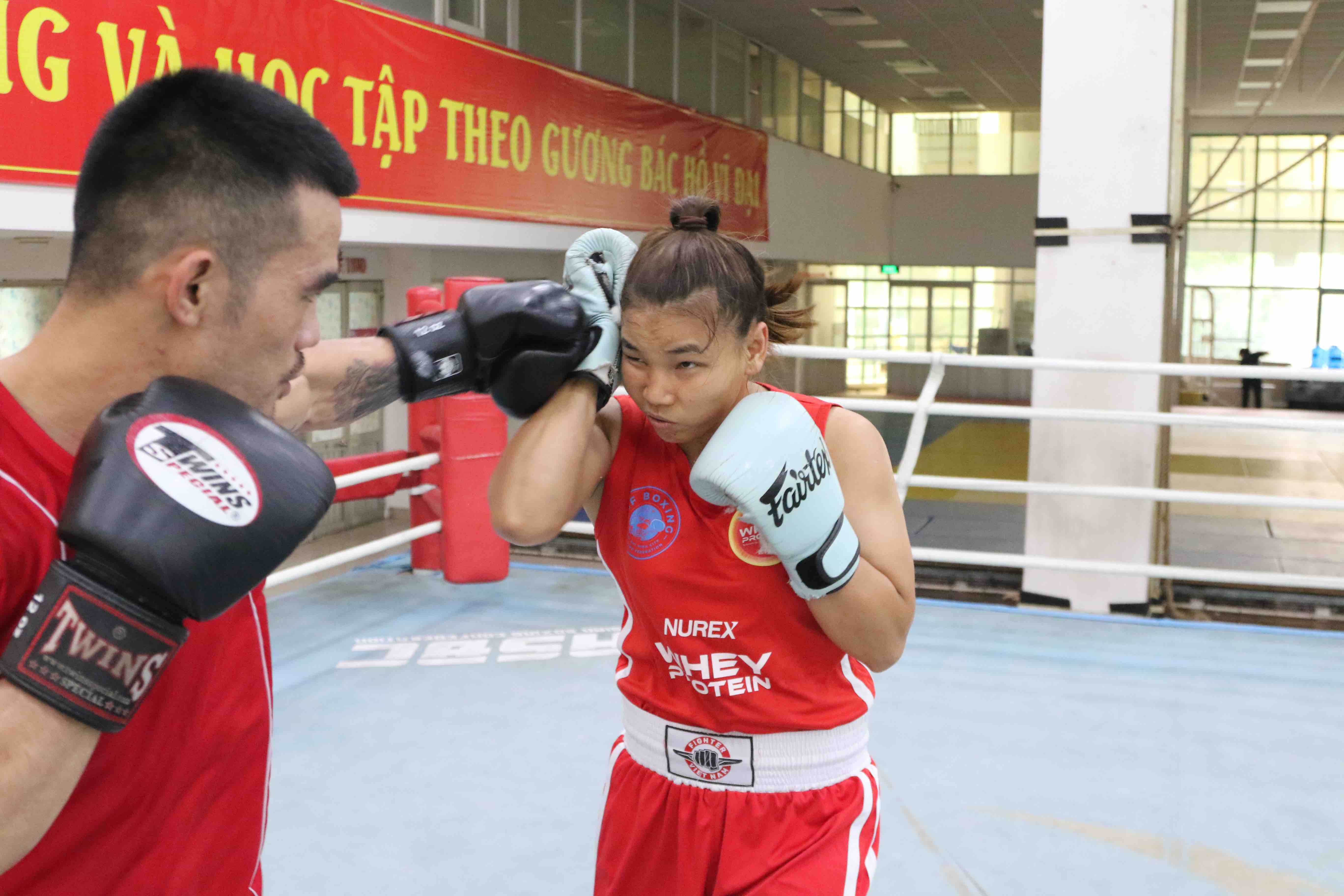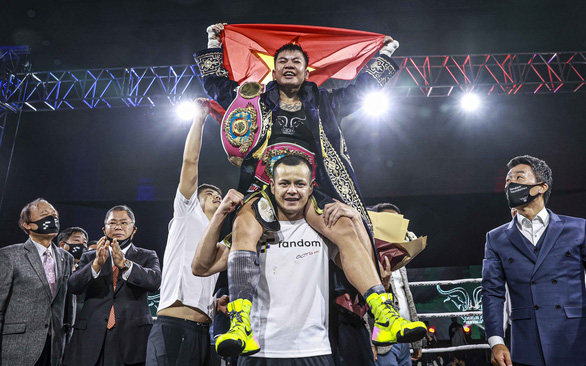Before Nguyen Thi Thu Nhi's historic victory at the World Boxing Organization (WBO) women's mini-flyweight world championship in 2021, women's boxing was banned in Vietnam because the image of females standing in the ring covered in sweat, blood, and bruises was deemed too violent.
In a year when the sports industry was still reeling from the COVID-19 outbreak, boxer Nguyen Thi Thu Nhi made a name for herself by winning Vietnam's first-ever WBO championship.
Since her triumph, Nhi’s story has been an inspiration for women across the country and is slowly changing local perceptions of female boxers.
Prejudice prevails
After being banned in the 1990s, women’s boxing made a comeback in the 2000s.
Female boxers were initially delighted but eventually discouraged by a combination of the sport’s intensity and family pressure when women’s boxing officially returned to Vietnam, according to Nguyen Thi Thu Hao, a first-generation female boxer in the country and a current coach on the Ho Chi Minh City boxing team.
|
|
| Nguyen Thi Thu Hao (middle) trains in the ring with two other female boxers in Ho Chi Minh City. Photo: Huy Dang / Tuoi Tre |
"When boxing came back to Vietnam, a handful of the girls were encouraged to give it a try," Hao told Tuoi Tre (Youth) newspaper.
“However, many eventually stopped or were put off by their parents because the sport is so intense.
"They'd all be injured a few times a week or month.”
Hao was born in Binh Dinh Province, just outside Ho Chi Minh City. Her mother, also a martial artist, moved the family to the city in the 1990s, where they enrolled her in a martial arts class.
Hao eventually joined the city’s female boxing team. By the end of her first year on the team, all of her female teammates had quit.
But she was committed to persevering through the brutal, and sometimes humiliating, training sessions alongside her male teammates.
"Training with punching bags wasn’t any good. Boxing is an antagonistic sport," Hao explained.
"The coach had to let me practice with male teammates."
Many martial artists consider it taboo to pit men against women, but the female boxers on the Ho Chi Minh City boxing team have been doing it for years.
Male boxers are stronger, faster, and better at taking hits than their female counterparts, said Nguyen Thi Ngoc Giau, one of Hao’s students.
"Competing against male boxers is like competing against someone in a totally different league," Giau said.
"However, it helps us increase our endurance and resilience."
Combating prejudices
Women’s boxing in Vietnam has gradually gained recognition over many difficult years.
There are now female boxers on teams across the country, with the Ho Chi Minh City squad alone boasting ten female members.
But despite its growing popularity, there is still a stigma surrounding the sport.
|
|
| Le Thi Hong Dao trains with a male boxer in Ho Chi Minh City. Photo: Tan Phuc / Tuoi Tre |
"I've been interested in martial arts since I was a kid, but my parents didn’t want me to fight because they were afraid that people would gossip about me and that it would be difficult for me to get married," said Le Thi Hong Dao, a junior lightweight boxer on the Ho Chi Minh City team.
"I didn’t tell my mother when I started boxing.
"Because of my passion, I advanced quickly and began trying other martial arts, like Muay Thai, kickboxing, and wushu.
"When I was 20 years old, I won first place in a national contest of traditional martial arts and kickboxing."
However, being a girl who practices boxing comes with a slew of complications, the most common of which is prejudice from others.
"I've decided that boxing is my true love. Whoever loves me will have to accept my job,” Dao shared.
Giau’s experience was similar to Dao’s. The only way to convince her father to accept her love for martial arts was to give him the silent treatment until he finally gave in.
Thu Nhi — The human torch
The Olympic boxing system includes amateur competitions, such as the Southeast Asian Games and Asian Games. In recent years, some professional leagues have emerged in Vietnam, opening up a whole new world for Vietnamese boxers.
Instead of adhering to government regulations, boxers now have access to a host of opportunities, ranging from private boxing clubs to international matches.
|
|
| Nguyen Thi Thu Nhi celebrates her victory at the WBO women's mini-flyweight world championship in Ansan, South Korea, October 23, 2021. Photo: N.T. / Tuoi Tre |
Among the heroines in the ring, Nguyen Thi Thu Nhi is perhaps the best known.
Nhi made history for Vietnamese boxing after defeating Japanese national Etsuko Tada to claim the WBO women’s mini-flyweight belt in Ansan, South Korea on October 23, 2021.
Making the win even more shocking was the fact that Nhi had never claimed an amateur boxing title despite having spent several years on the Ho Chi Minh City boxing team.
"There are many differences between amateur and professional boxing. Amateur boxing emphasizes speed. The more hits you land, the more points you get," Nhi said.
"Due to a lack of protective gear, professional boxing is a bit slower and requires heavier punches.
"Someone slow like me can focus more on precision."
Nhi's accomplishment has paved the road for upcoming female Vietnamese boxers.
Hao, Nhi's coach, wishes she were ten years younger so that she could have the same opportunities.
"If I had a chance, I would definitely want to fight in a professional league like Nhi," she admitted.
"So do other young athletes.
"Nhi's victory has truly excited everyone."
As prejudice begins to fade, no amount of sweat, tears, blood, or suffering will be able to keep the heroines from conquering the ring and pursuing their dreams.
Like us on Facebook or follow us on Twitter to get the latest news about Vietnam!






















































